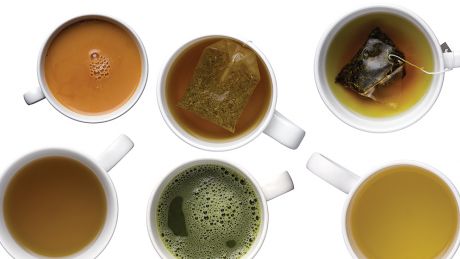Put the Kettle On: The Benefits of Tea
Upgrade your cuppa and unlock a host of extra health benefits

According to legend, the story of tea starts in China back in 2737 BC, when some leaves were blown into the Emperor Shennong’s boiling water. Rather than ditch what could well have been poisonous liquid, Shennong drank it – or perhaps instructed a servant to drink it – and found it delicious.
The tea boom began there and has continued until today, with tea the second most popular
drink in the world behind water. And from the early days of tea-drinking, it has been claimed as an elixir. The book Kissa Yojoki (How To Stay Healthy By Drinking Tea) was written in Japan in 1211.
Throughout the drink’s history, it undoubtedly did save many lives, as boiling the water for it killed off typhoid, cholera and other bugs. But does it have any more direct benefits?
Will tea save your life?
When it comes to studies into tea’s life-saving potential, the jury is out. Cochrane Reviews analysed a number of studies to show links between green tea and cancer prevention, and weight loss in obese adults, have both come back saying there isn’t enough evidence to claim a significant effect.
More recently, a 2013 Cochrane study looked at the effect of green and black tea in reducing cardiovascular risk. This time the results were more positive, suggesting tea did have a favourable effect on risk factors like blood pressure and LDL cholesterol (bad cholesterol). However, the review also said that the evidence was limited due to the small amount of trials.
RECOMMENDED: Is Coffee Good for You?
The Benefits of Different Types of Tea
Black – Best for Boosting Energy
The tea used for the good old-fashioned builder’s cuppa accounts for roughly three-quarters of the world’s consumption, which isn’t that surprising considering it has the highest caffeine levels at around 40mg per cup – perfect for fuelling your gym (or construction) efforts.
Get the Coach Newsletter
Sign up for workout ideas, training advice, reviews of the latest gear and more.
Green – Best for Burning Fat
The tea you’ll find most often in healthy eating plans, largely because it helps speed up your metabolism to burn more calories, but it’s also packed with potent antioxidants that may help to prevent cancer.
RECOMMENDED: Best Fat Burners
Matcha – Probably the Best
Matcha is a powder made from ground green tea leaves, which is whisked with hot water to make an especially concentrated tea. If there is any health benefit to tea, matcha will be the best source as you actually consume the leaves in their powder form. It is an acquired taste, although fans of green tea will have an easier time adjusting.
Ginger – Best for Enhancing Recovery
This herbal tea is a perfect post-gym brew thanks to its powerful anti-inflammatory properties, which help soothe your aching muscles after a tough session. And you don’t have to shell out for expensive bags either – simply drop a slice of fresh ginger (or half a teaspoon of the powdered variety) into a cup and add boiling water.
White – Best for Defying Age
A mild and smooth option – because the leaves are picked when very young – white tea is far lower in caffeine than others at just 15mg per cup, if you want to avoid the risk of becoming jittery. It has high levels of polyphenols, which help to strengthen the elastin and collagen in your skin to help combat wrinkles.
Peppermint – Best for Digestion
Feeling the bloat after a hefty meal? This minty brew will improve mobility in your digestive tract to help relieve the symptoms. It’s also easy to cultivate the herb in your garden – to make a homegrown cup, all you have to do is dry the leaves and add to boiling water.
Chamomile – Best for Improving Sleep
Made from the flower of the same name, this sweet beverage has been found to reduce anxiety levels and is often prescribed as a treatment for insomnia. Bonus benefit: it may also alleviate chesty coughs.
RECOMMENDED: How to Sleep Better

Nick Harris-Fry is a journalist who has been covering health and fitness since 2015. Nick is an avid runner, covering 70-110km a week, which gives him ample opportunity to test a wide range of running shoes and running gear. He is also the chief tester for fitness trackers and running watches, treadmills and exercise bikes, and workout headphones.
